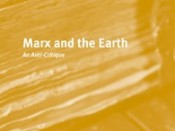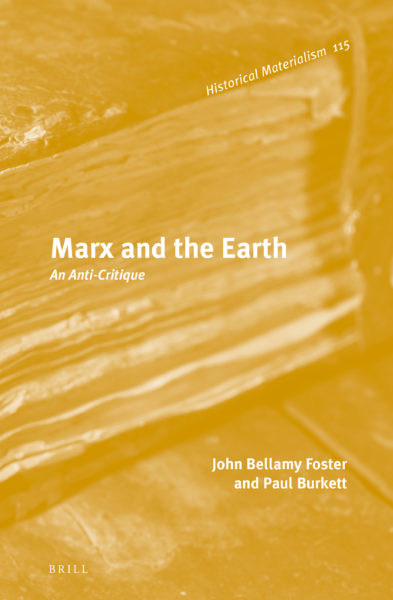“Marxism and the Dialectics of Ecology,” (John Bellamy Foster, Brett Clark, Foster listed first), Monthly Review, vol. 68, no. 5 (October 2016), pp. 1-17.
The recovery of the ecological-materialist foundations of Karl Marx’s thought, as embodied in his theory of metabolic rift, is redefining both Marxism and ecology in our time, reintegrating the critique of capital with critical natural science. This may seem astonishing to those who were reared on the view that Marx’s ideas were simply a synthesis of German idealism, French utopian socialism, and British political economy. However, such perspectives on classical historical materialism, which prevailed during the previous century, are now giving way to a broader recognition that Marx’s materialist conception of history is inextricably connected to the materialist conception of nature, encompassing not only the critique of political economy, but also the critical appropriation of the natural-scientific revolutions occurring in his day.
What Georg Lukács called Marx’s “ontology of social being” was rooted in a conception of labor as the metabolism of society and nature. In this view, human-material existence is simultaneously social-historical and natural-ecological. Moreover, any realistic historical understanding required a focus on the complex interconnections and interdependencies associated with human-natural conditions. It was this overall integrated approach that led Marx to define socialism in terms of a process of sustainable human development—understood as the necessity of maintaining the earth for future generations, coupled with the greatest development of human freedom and potential. Socialism thus required that the associated producers rationally regulate the metabolism of nature and society. It is in this context that Marx’s central concepts of the “universal metabolism of nature,” “social metabolism,” and the metabolic “rift” have come to define his critical-ecological worldview.
Translation:
Spanish translation in Derrota y Navegación, November 13, 2016


